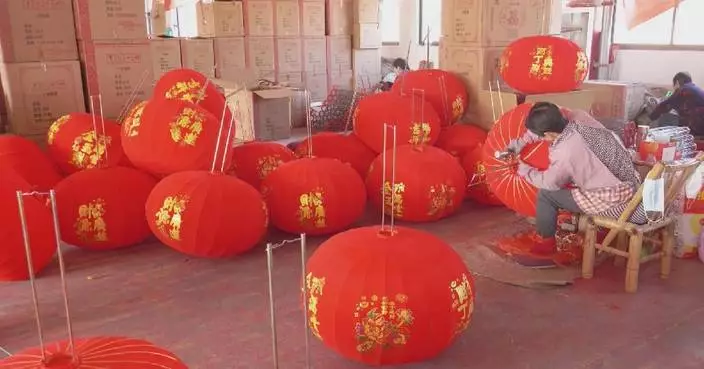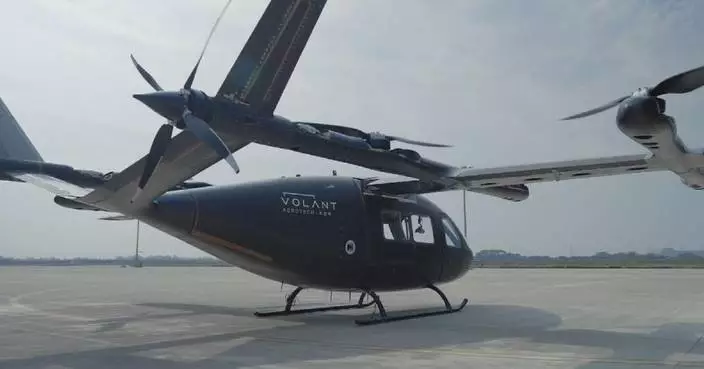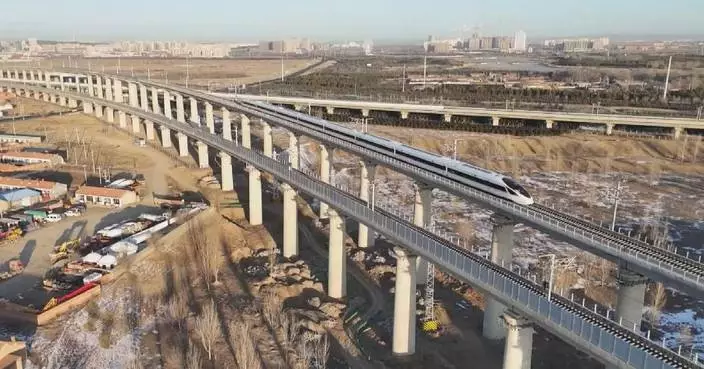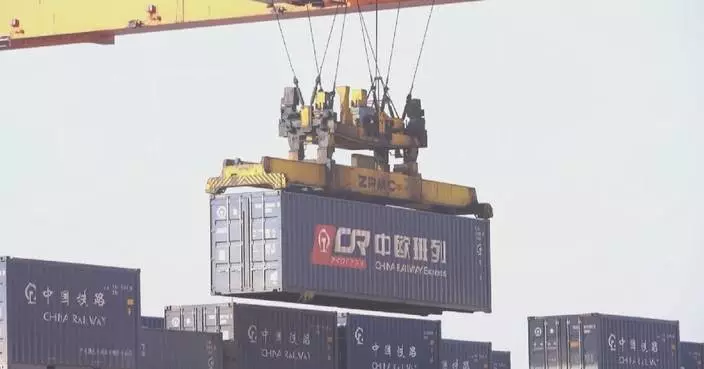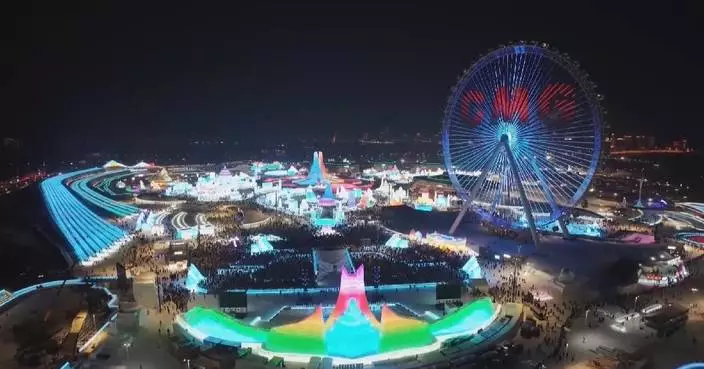A highly integrated supply chain with advanced products and cutting-edge technologies is steering China towards greater success in the global electric vehicle (EV) market despite the tariff hikes by the United States.
When it comes to China's new energy vehicle (NEV) industry, the southern province of Guangdong is arguably the "epicenter" of disruptive technologies.
Last year, one in every four NEVs in China was produced in Guangdong, official data showed. Guangdong is home to an advanced ecosystem that supplies every EV component from start to finish.
One could argue that the most prized component of an electric vehicle is the battery. Inpow Battery Technology (IBT) has just built a brand-new factory in Guangzhou, the provincial capital of Guangdong. Inside the factory is one of the most efficient battery production lines in the world.
Guided by AI, the factory's machines can produce enough batteries to power 600,000 cars every year, yet they only meet a fraction of the demand by one local automaker.
The company's technology director Liu Taigang explained that batteries are the core of the EV supply chain, as it determines the car's safety, charging, range, cost and residual value.
He also noted that Chinese EV batteries are world-leading because of its complete supply chain.
"Our battery laminating machines and assembly lines are leading the world. All the equipment can be basically sourced within a two-hour radius in the Pearl River Delta. They have good performance and quality with speedy after-sales services," said Liu.
While U.S. politicians have called Chinese EV exports "artificially cheap" and have raised tariffs to a staggering 100 percent in the name of "fair competition," manufacturers in Guangdong said this is not the reality.
"We don't receive any subsidies from the national or local governments. It's pure market competition. The scale effect and the diligence of Chinese workers have put us ahead globally," said Liu.
Li Jin, head of battery research and development at the Guangzhou-headquartered EV maker GAC Aion, is leading a team of engineers to apply the most cutting-edge technologies in battery production.
"In China, the capacity and technological levels of battery production lines vary. The excellent production lines of our company can achieve higher efficiency, lower cost and more accurate quality control," said Li.
Li's team is striving to replace traditional lithium batteries with future alternatives, but key technological difficulties remain.
"All-solid-state batteries can achieve a greater breakthrough in energy density and safety, therefore, they're considered the Mount Qomolangma of EV battery technology and a technological highland of competition in the global power battery industry. But there are still many technological challenges in key materials and manufacturing techniques," said Li.
Analysts say hiking tariffs on Chinese electric vehicles could put such new technologies out of reach for mainstream U.S. consumers. European automakers, as a contrast, are taking a more collaborative approach by creating joint ventures with Chinese counterparts.
Sun Xingjie, a professor with the School of International Relations at the Sun Yat-sen University in Guangdong, stressed that Chinese EV makers need more patience in exploring overseas market.
"The development of the NEV industry correlates with globalization. The new energy vehicle is not only a transport means or a new vehicle form, but more importantly, it redefines critical minerals. Exploring overseas market needs time and patience," said Sun.
He also said that U.S. tariffs are largely political theatrics, and that as long as the world is transitioning to new energy, Chinese EV industry will continue to grow.
Growth has been rapid at GAC Aion. The Guangzhou company said it achieved one million sales quicker than any other car brand in the world.
Five years since launching, GAC Aion is producing in Thailand for consumers in Southeast Asia, and plans to enter Europe by next year.
"There are many barriers overseas and even unfair competition faced by Chinese EV makers. But I believe overseas consumers won't refuse and they even crave high-quality and technologically advanced products. Chinese EV makers should actively integrate into local market and culture when going global," said Xiao Yong, deputy general manager of GAC Aion.
Industry experts said that as countries worldwide move to electrification at different speeds, the EV transition is not a binary competition.
Global automakers must avert geopolitical influences and acknowledge that crafting top-notch, affordable green vehicles is a universal mission. Ultimately, the quest for eco-friendly transportation will drive progress and shape EV systems, they also said.
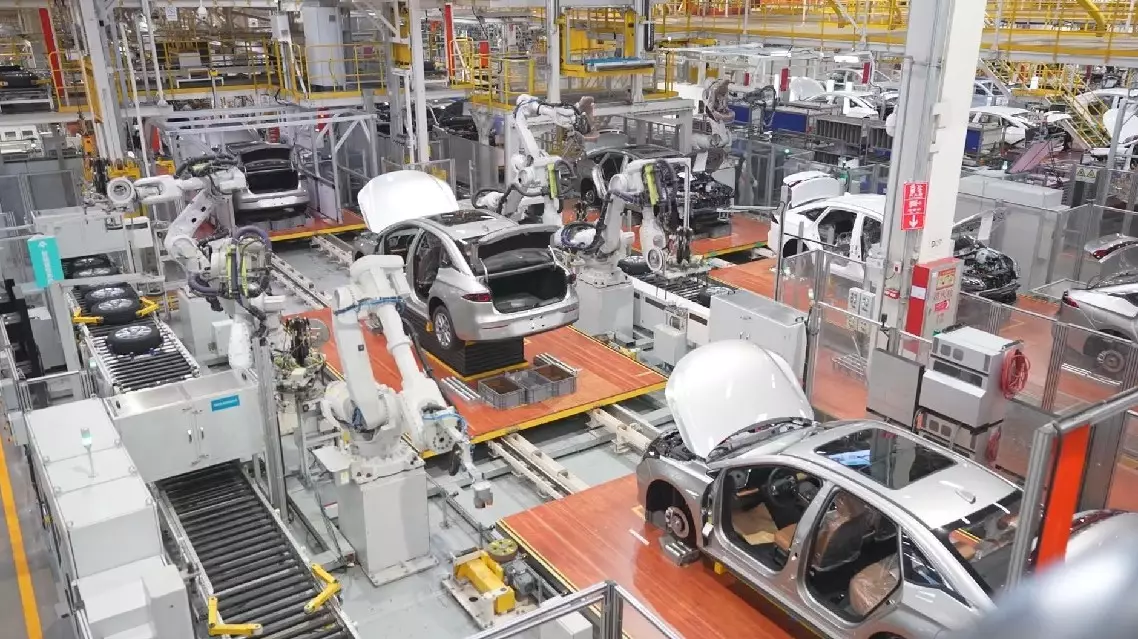
Supply chain advantages promote China increase in global EV market





